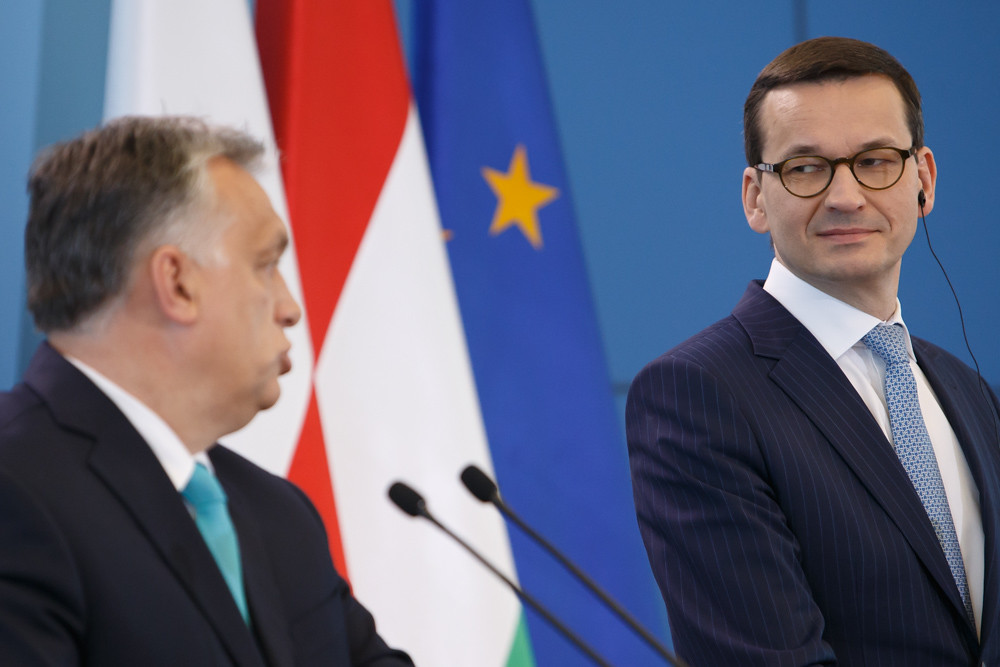Why Poland and Hungary hinder Ukrainian exports

A month ago, five EU countries complained to Brussels about excessive imports of Ukrainian products, including wheat. Now Poland and Hungary have taken action by banning exports from Kiev. Who else will follow them? Facts, numbers and comments
The European Commission rejected the ban on imports of Ukrainian grain and other agricultural products introduced last Saturday by Hungary and Poland. The decision taken unilaterally by the two countries to protect their agricultural sector, according to the Brussels Commission, goes against the trade policy of the Union.
THE ANNOUNCEMENT OF HUNGARY AND POLAND
Once delivered largely to African and Middle Eastern countries, since Russia invaded Ukraine and occupied large coastal areas around the Black Sea preventing its export, Ukrainian wheat has begun to be traded in Central European states, such as Poland and Hungary, unleashing the discontent of farmers since they are much cheaper goods.
Hence the decision of the two countries to put an end to imports. Hungary did not provide details on when the ban would go into effect but both said it will expire at the end of June.
THE WARNINGS OF DISCONTENT
Already last month, Reuters recalls, the prime ministers of Poland, Hungary, Romania, Bulgaria and Slovakia had written in a letter to the president of the European Commission, Ursula von der Leyen, that the extent of the increase in products, including cereals , oilseeds, eggs, poultry and sugar, had been "unprecedented".
For this reason, they initially called for a series of measures to be taken to limit market distortions but, if they were not enough, the reintroduction of duties on Ukrainian agricultural imports should have been considered. The EU moratorium on tariffs ends on June 30, but the Commission has proposed to extend it for another year and some Member States, including Spain and the Netherlands, want to buy Ukrainian cereals for animal feed.
Meanwhile, to mitigate the consequences of the impact of "excessive supply", the Commission last month proposed that €56.3 million be allocated to the farmers most affected.
A CHOICE REQUIRED BY POPULAR CONSENT?
In Poland, where the economy is currently in stagflation, oversupply has created a political problem for the right-wing Law and Justice (PiS) party, now in government, and due to face elections this autumn. Citizens in rural areas, where support for PiS is usually high, were in fact very irritated.
“We are and remain unchanged friends and allies of Ukraine. We will support and support it […] But it is the duty of every state, every authority, every good authority in any case, to protect the interests of its citizens,” PiS leader Jaroslaw Kaczynski said.
Polish Agriculture Minister Robert Telus added that the ban was necessary to "open the EU's eyes to the fact that further decisions are needed that allow products from Ukraine to enter Europe and not stay in Poland".
In the evening, the Hungarian government of Viktor Orban also followed suit by saying that the status quo would cause great damage to local farmers.
Both countries have also long been in conflict with Brussels over issues such as judicial independence, media freedom and LGBT rights, and both have faced blockages of funds due to rule of law concerns.
KIEV'S ANSWER
Ukraine expressed regret for Warsaw's decision, stating that "resolving various issues with drastic unilateral actions will not speed up a positive resolution of the situation".
Ukraine's Ministry of Agriculture and Food also said the ban contradicts existing bilateral agreements on exports and called for talks to resolve the matter.
"We understand that Polish farmers are in a difficult situation – he said -, but we underline that Ukrainian farmers are in an even worse situation".
Poland has said it is ready to start talks, while the Hungarian government wants regulatory changes at the European level, including a rethink on tariffs.
Meanwhile, the Bulgarian Agriculture Minister, Yavor Gechev, also announced that the country is considering the possibility of banning imports of Ukrainian wheat.
THE NUMBERS OF EXPORTS
According to data reported by the Ukrainian Ministry of Agriculture, about 3 million tons of grain leave each month through the Black Sea, while only a maximum of 200,000 tons make their way to European ports through Polish territory.
Instead, the various agricultural products, including wheat, vegetable oil, sugar, eggs, meat and other products, which cross the Polish border every month vary between 500,000 and 700,000 tons.
WHAT THE EU THINKS
Miriam Garcia Ferrer, spokesperson for the Commission for trade and agriculture underlined that "trade policy is the exclusive competence of the EU and, therefore, unilateral actions are not acceptable". Furthermore, "in such difficult times, it is essential to coordinate and align all decisions within the Union".
THE BLACKMAIL OF MOSCOW
All this fits into a context in which the provisional agreement for the export of Ukrainian products via the Black Sea between Ukraine, Turkey, Russia and the United Nations is getting ever closer to the deadline set for May 18, with Moscow last week it already let it be known that it may not be extended unless the West removes obstacles to the export of Russian grain and fertilizers.
This is a machine translation from Italian language of a post published on Start Magazine at the URL https://www.startmag.it/economia/perche-polonia-e-ungheria-esportazioni-ucraine/ on Mon, 17 Apr 2023 10:23:53 +0000.
